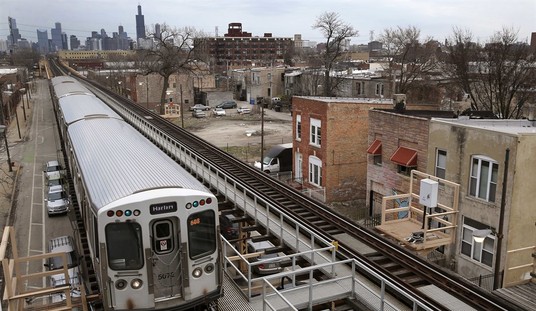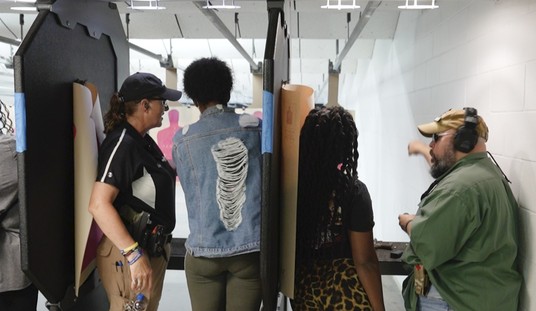California already has dozens of gun control laws already in place, and more are likely on the way once Gov. Gavin Newsom tackles the dozen-or-so anti-gun bills that have made it to his desk this year. From “universal” background checks to waiting period to expansive “red flag” laws, Democrats in Sacramento have crafted a tightly-controlled regime that’s ostensibly meant to ensure that violent criminals and other prohibited persons can’t get ahold of a gun, though as we’ve seen time and time again, the laws in place end up doing little to nothing to actually prevent the illegal acquisition and use of a gun.
Just take the tragic and senseless murder of Los Angeles County Sheriff’s deputy Ryan Clinkunbroomer earlier this month. As the East Bay Times reports, the suspect accused of shooting Clinkunbroomer had been diagnosed with schizophrenia and had been involuntarily committed according to his mother, which should have rendered him unable to lawfully purchase or possess a gun under California law, but somehow Kevin Cataneo Salazar allegedly got his hands on one anyway. As Second Amendment attorney and California Rifle & Pistol Association head Chuck Michel told the paper, it’s not just the state’s gun laws that are in desperate need of reform.
Police often are dispatched with a crisis assessment team made up of clinicians to help assess the person’s danger level. Many times, the responders are hobbled from the beginning, experts say. Police and social workers know there are not enough beds to house those brought in for 72-hour evaluation under the 5150 code.
“It’s a damnable position to be in,” said Steve Pitman, president of the National Alliance on Mental Illness Orange County. “Generally, in Orange County, there are no beds.”
Experts trace the lack of statewide psychiatric beds to the 1960s and the move to shutter some state-run mental hospitals in favor of community-based treatment, which wasn’t provided at an adequate level.
Statistics kept by the California Hospital Association show there were 6,072 psychiatric beds statewide in 2018, a drop from 9,353 in 1995. California is below the national average for hospital beds available for in-patient psychiatric care.
So bad is the shortage, according to experts, that in many cases, people needing to be detained are not taken in at all. And most of those who do get detained are not kept for the full 72-hour evaluation period.
…
According to the state Department of Health Care Services, 120,402 adults were kept for the three-day period in fiscal 2020-21. The numbers show 48,292 were kept for 14 days, while only 3,299 were kept for 30 days.
“I’ve seen a lot of people who don’t know if it’s day or night outside getting released,” said Chuck Michel, an attorney and president of the California Rifle and Pistol Association.
Michel’s, an expert in gun laws, said anyone committed for 72 hours on a psychiatric hold in California is banned from buying or possessing a firearm for five years. If someone is committed twice in the same 12-month period, the firearm ban is for life, Michel said.
Michel says the CalDOJ database used to screen would-be gun (and ammo) buyers is rife with errors, so it’s possible that Salazar simply wasn’t flagged when trying to purchase a firearm. He could also have obtained his gun illegally, given the flourishing black market for guns and ammo in the state, though authorities still aren’t sure how and when the suspect got the gun he allegedly used in the ambush attack on the sheriff’s deputy.
No matter how restrictive California’s gun laws may be, there’ll always be a way for commit criminals to circumvent the statutes and get ahold of a gun through illicit means. But as Michel hints at in his comments to the paper, the state is also using its gun control regime as a band-aid to avoid fixing the fundamental failures of its mental health system. Those who might be in an acute crisis aren’t guaranteed of help. In fact, based on the stats far too many of them are simply returned to the streets after a short stay, but are now barred from possessing or purchasing a gun for the next five years. Not only does that leave many folks in need without a pathway for treatment, but the thousands of Californians who are taken in on a temporary mental health hold but are determined not to pose a danger to themselves or others are still subject to what I believe is an unconstitutional deprivation of their right to keep and bear arms.
California’s attitude seems to be disarm the citizenry first, then figure out if there’s actually a problem. From its “red flag” law to the five-year (or in some cases a lifetime) ban on gun ownership to those taken in on a 5150 hold, the focus is on getting rid of the gun rather than getting a person help. The result? A laundry list of constitutionally questionable laws and a broken mental health system that are putting the rights and safety of lawful California residents and responsible gun owners at risk.









Join the conversation as a VIP Member